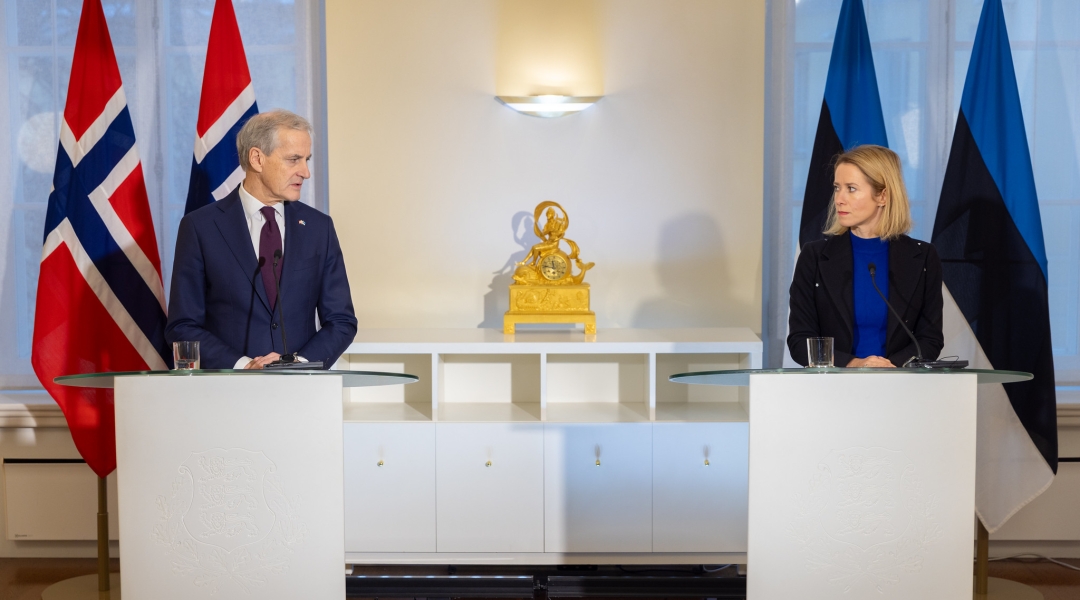Russia’s war against Ukraine has implications not only for the security of our region but also the whole of NATO and also globally. We both understand that Ukraine requires substantial support from us to win this war.
That’s why Estonia has given Ukraine military aid amounting to over 1.3% of our GDP. And Norway’s long-term package to Ukraine – 6.8 billion euros over a five-year period – also sends the right signal. We are behind Ukraine.
During my visit to Norway in the first months of Russia's full-scale aggression against Ukraine, I was asked at the press conference how far it was necessary to go in supporting Ukraine. Since then, we have been able to see that Ukrainians, – with the help of the world – are capable of winning this war.
It's not enough to say that Ukraine must win. We also have to say that Russia has to lose, and this means being militarily defeated in Ukraine. Our focus must be on arms, ammunition, and training.
Russians have understood that quantity of resources is quality. But we are quite capable of defeating them also in numbers. The combined defence budgets of the Ramstein coalition are more than 13 times greater than Russia’s heavily inflated one. There should be no doubt in who has the advantage to prevail.
It is important to keep close attention and resolve on Ukraine, despite the escalation in the Middle East and other crises around us, which also require our attention.
To achieve the goal, we all need to do more. The EU’s decision to deliver 1 million shells to Ukraine is crucial also as a catalyst for the European defence industry. Acknowledging the industry's needs, Estonia for instance plans to procure ammunition amounting to nearly 30% of our defence budget over the next four years. The establishment of an industrial park dedicated to ammunition production is underway. I have also invited Norway to consider joining the initiative.
I also would like to thank you for aligning with EU sanctions. We hope EU 12th package will be agreed before the end of the year. Estonia and Norway cooperate well on isolating Russia and limiting its role in international organisations.
Russia also continues its shadow war. Migratory pressure we can see on the Finnish and also – to a lesser extent – on the Estonian border is another example of it. The Kremlin also considers energy its effective weapon. We must continue to strengthen our energy independence, as well as security of our strategic connections. The recent damage to a gas pipeline and communication cables in the Baltic Sea, - the circumstances of which are still under investigation, - showed that we must be prepared for any type of scenario.
We appreciate Norway’s contribution to the EU’s security of gas and oil supply. And I see great potential in Estonia and Norway working together on developing the renewable energy and implementing the green transition. It will help us to advance towards climate goals and reinforce our economic ties as well. Last year we decided to launch an analysis of how we could take our partnership in this field to the next level. Today, scientists from our two countries will present the results to the public. Our energy authorities should also explore collaboration goals that can be achieved in this regard.
My government’s priority is to create a favorable environment for the development of renewable energy. I am very glad that Norwegian companies are interested in being part of it. Today, entrepreneurs from our two countries will discuss the future of our offshore wind energy. I wish them very fruitful discussions!
Thank you for coming and very good cooperation we have had so far.
